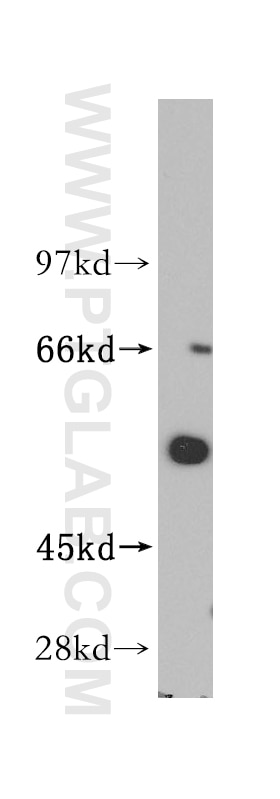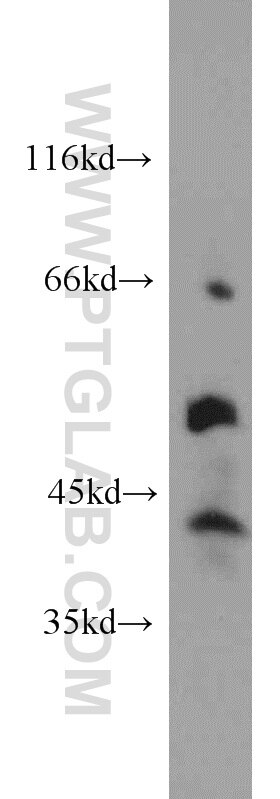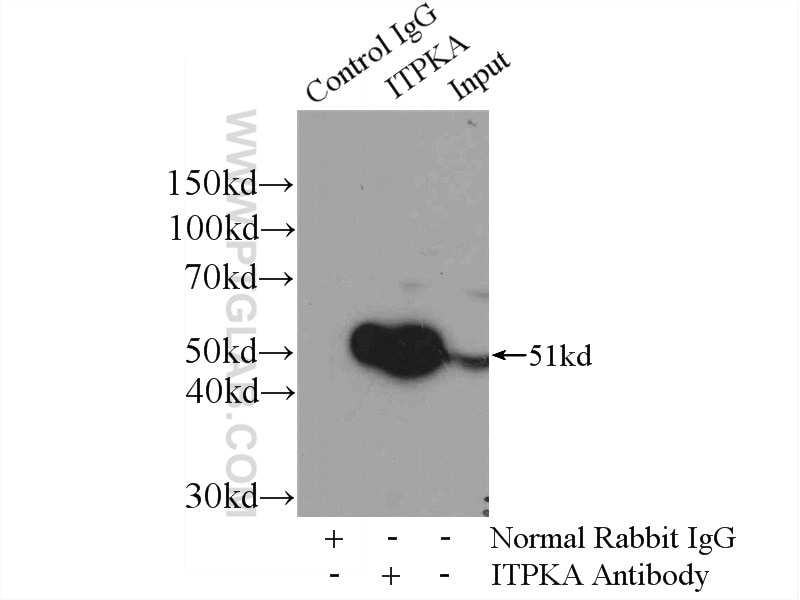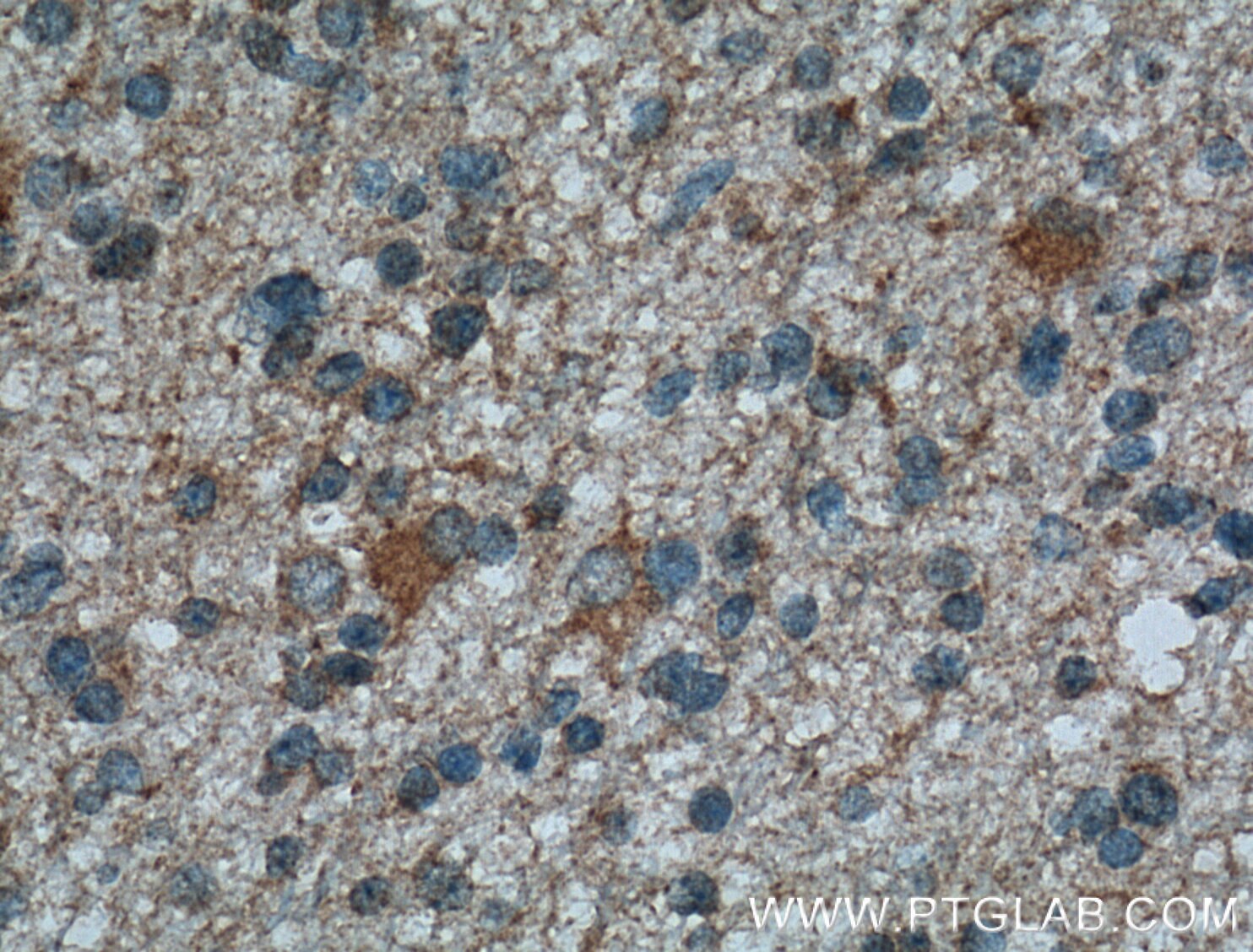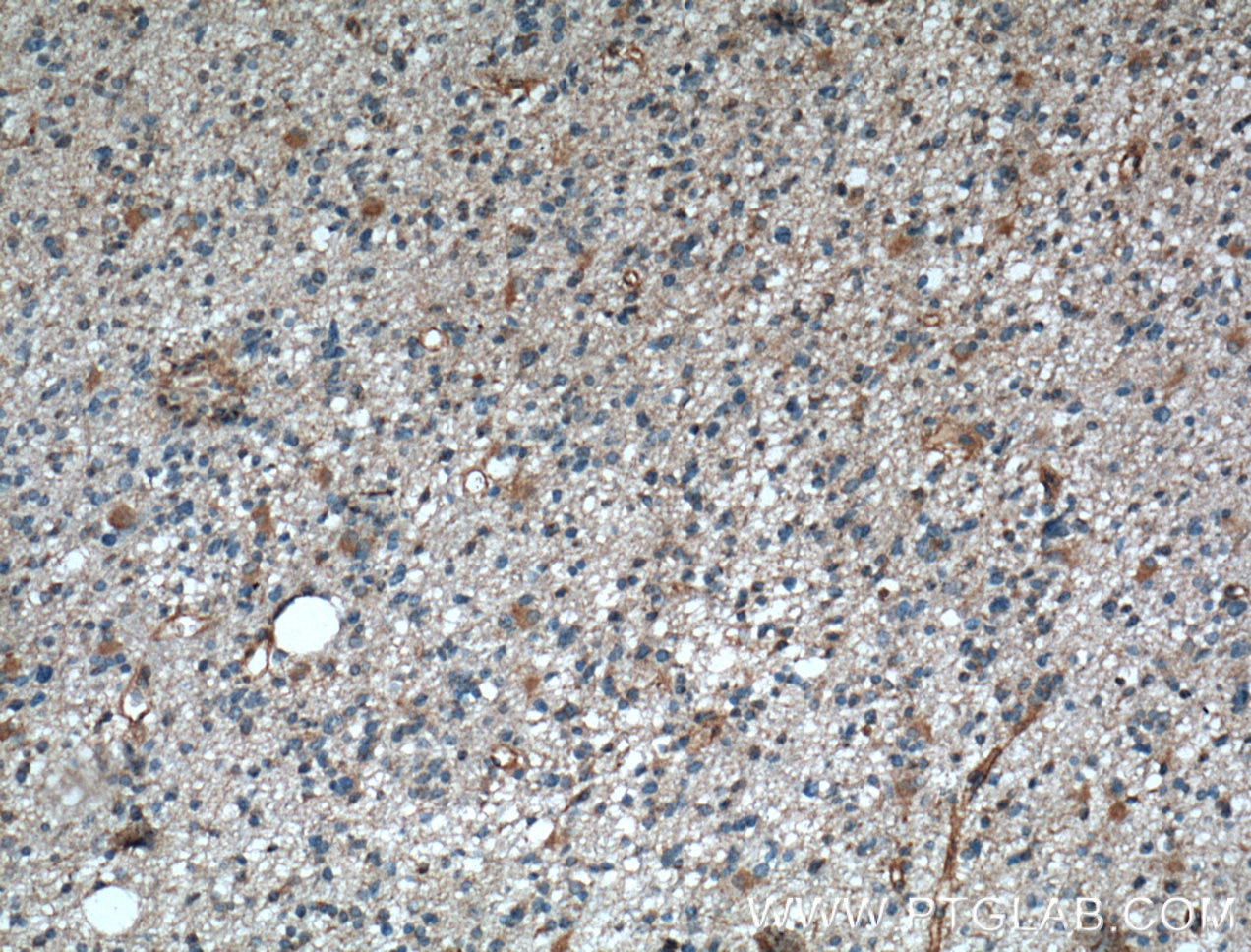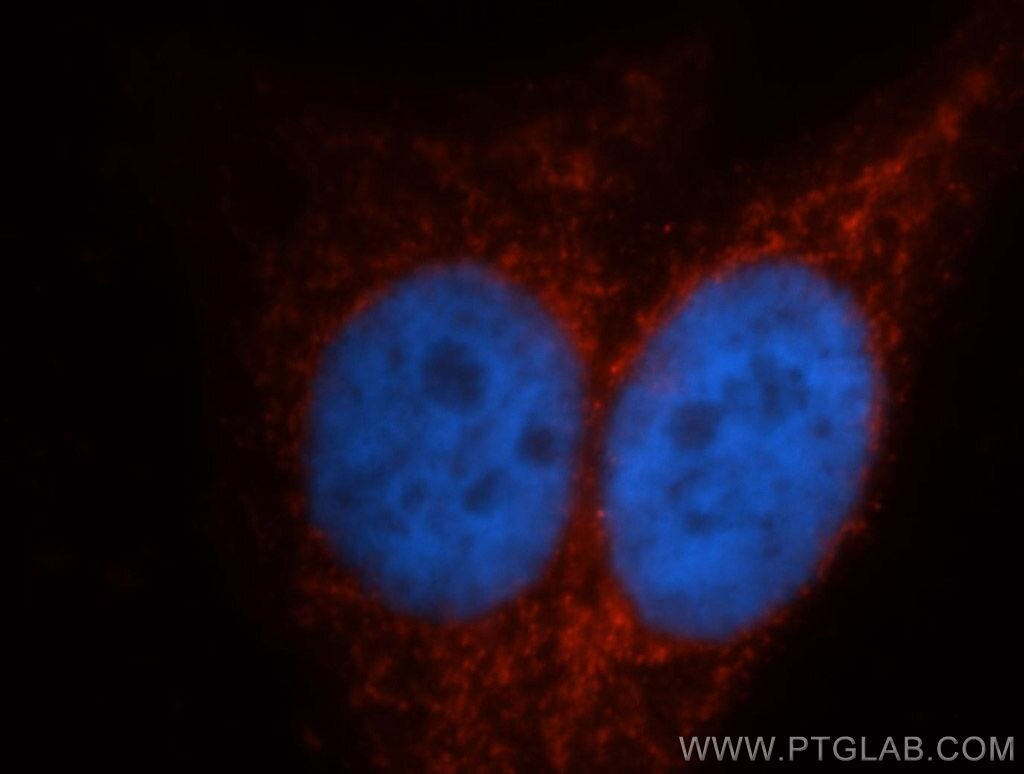Validation Data Gallery
Tested Applications
| Positive WB detected in | mouse brain tissue |
| Positive IP detected in | mouse brain tissue |
| Positive IHC detected in | human gliomas tissue Note: suggested antigen retrieval with TE buffer pH 9.0; (*) Alternatively, antigen retrieval may be performed with citrate buffer pH 6.0 |
| Positive IF/ICC detected in | HepG2 cells |
Recommended dilution
| Application | Dilution |
|---|---|
| Western Blot (WB) | WB : 1:500-1:3200 |
| Immunoprecipitation (IP) | IP : 0.5-4.0 ug for 1.0-3.0 mg of total protein lysate |
| Immunohistochemistry (IHC) | IHC : 1:100-1:400 |
| Immunofluorescence (IF)/ICC | IF/ICC : 1:20-1:200 |
| It is recommended that this reagent should be titrated in each testing system to obtain optimal results. | |
| Sample-dependent, Check data in validation data gallery. | |
Published Applications
| KD/KO | See 1 publications below |
| WB | See 7 publications below |
| IHC | See 3 publications below |
| IF | See 2 publications below |
Product Information
14270-1-AP targets ITPKA in WB, IHC, IF/ICC, IP, ELISA applications and shows reactivity with human, mouse, rat samples.
| Tested Reactivity | human, mouse, rat |
| Cited Reactivity | human, mouse |
| Host / Isotype | Rabbit / IgG |
| Class | Polyclonal |
| Type | Antibody |
| Immunogen |
CatNo: Ag5588 Product name: Recombinant human ITPKA protein Source: e coli.-derived, PGEX-4T Tag: GST Domain: 141-461 aa of BC026331 Sequence: LLSDSESRSRGNVQLEAGEDVGQKNHWQKIRTMVNLPVISPFKKRYAWVQLAGHTGSFKAAGTSGLILKRCSEPERYCLARLMADALRGCVPAFHGVVERDGESYLQLQDLLDGFDGPCVLDCKMGVRTYLEEELTKARERPKLRKDMYKKMLAVDPEAPTEEEHAQRAVTKPRYMQWREGISSSTTLGFRIEGIKKADGSCSTDFKTTRSREQVLRVFEEFVQGDEEVLRRYLNRLQQIRDTLEVSEFFRRHEVIGSSLLFVHDHCHRAGVWLIDFGKTTPLPDGQILDHRRPWEEGNREDGYLLGLDNLIGILASLAER 相同性解析による交差性が予測される生物種 |
| Full Name | inositol 1,4,5-trisphosphate 3-kinase A |
| Calculated molecular weight | 51 kDa |
| Observed molecular weight | 51 kDa |
| GenBank accession number | BC026331 |
| Gene Symbol | ITPKA |
| Gene ID (NCBI) | 3706 |
| RRID | AB_2129841 |
| Conjugate | Unconjugated |
| Form | |
| Form | Liquid |
| Purification Method | Antigen affinity purification |
| UNIPROT ID | P23677 |
| Storage Buffer | PBS with 0.02% sodium azide and 50% glycerol{{ptg:BufferTemp}}7.3 |
| Storage Conditions | Store at -20°C. Stable for one year after shipment. Aliquoting is unnecessary for -20oC storage. |
Background Information
ITPKA(Inositol-trisphosphate 3-kinase A) belongs to the inositol phosphokinase (IPK) family. It accumulates in dendritic spines and seems to be critically involved in synaptic plasticity. The protein possesses two functional activities. In neurons, ITPKA is targeted to F-actin via an N-terminal actin binding domain (amino acids 1-66) and is relevant for long term potentiation and spatial learning(PMID:20022963).
Protocols
| Product Specific Protocols | |
|---|---|
| IF protocol for ITPKA antibody 14270-1-AP | Download protocol |
| IHC protocol for ITPKA antibody 14270-1-AP | Download protocol |
| IP protocol for ITPKA antibody 14270-1-AP | Download protocol |
| WB protocol for ITPKA antibody 14270-1-AP | Download protocol |
| Standard Protocols | |
|---|---|
| Click here to view our Standard Protocols |
Publications
| Species | Application | Title |
|---|---|---|
Neuron Nicotinamide Pathway-Dependent Sirt1 Activation Restores Calcium Homeostasis to Achieve Neuroprotection in Spinocerebellar Ataxia Type 7. | ||
J Mol Cell Biol Single-cell transcriptomes reveal molecular specializations of neuronal cell types in the developing cerebellum. | ||
Int J Cancer Functional role of inositol-1,4,5-trisphosphate-3-kinase-A for motility of malignant transformed cells.
| ||
Neuroscience Sex-specific Regulation of Spine Density and Synaptic Proteins by G-protein-coupled Estrogen Receptor (GPER)1 in Developing Hippocampus. | ||
Cytoskeleton (Hoboken) The catalytic domain of inositol-1,4,5-trisphosphate 3-kinase-A (ITPKA) contributes to ITPKA-induced modulation of F-actin. | ||

